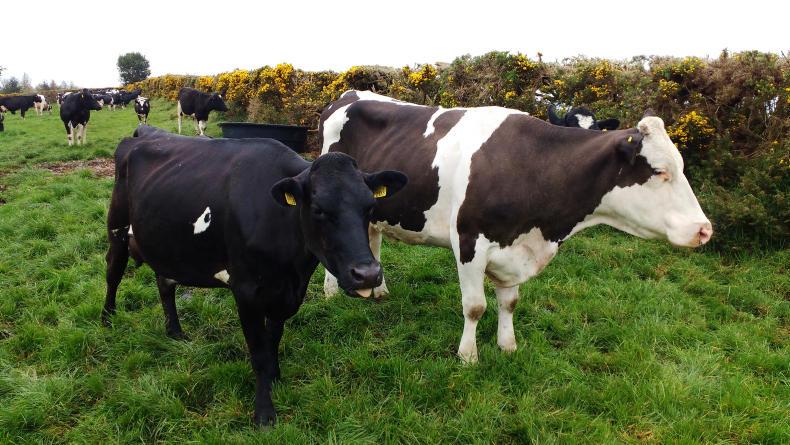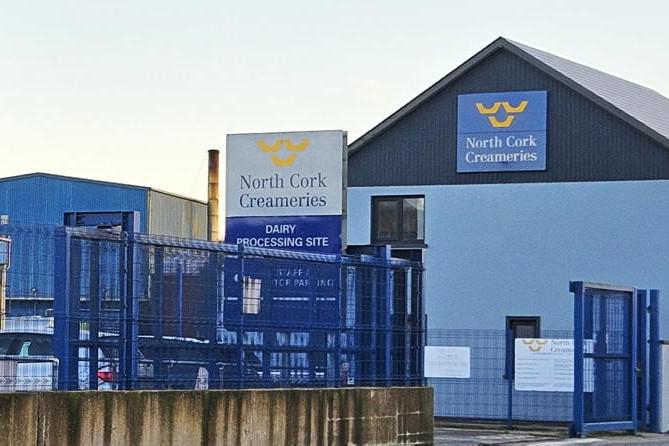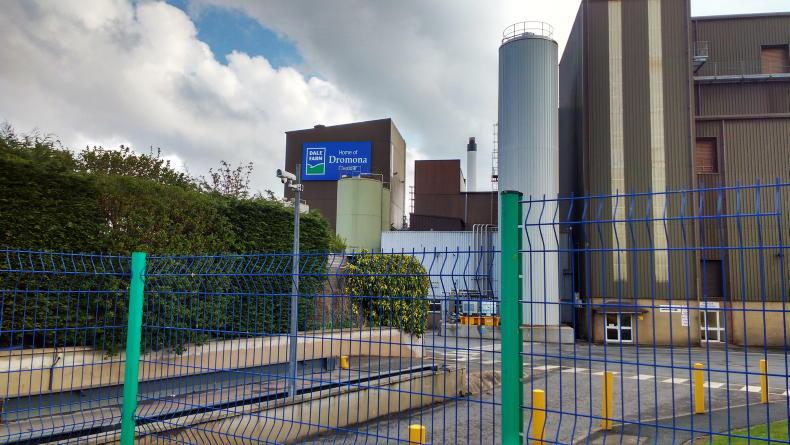Research commissioned by the Department for the Economy (DfE) into possible customs arrangements in Ireland in the event of a no-deal Brexit has highlighted the challenges that leaving without a deal would pose for businesses in NI.
The work was completed by two lawyers, Eric Pickett and Michael Lux, who specialise in EU customs and international trade law. They were tasked by DfE with identifying possible solutions that would help facilitate trade if the UK exits the EU without a deal.
The report is a sobering reflection of the limited room for manoeuvre for businesses and government in a no-deal context
While they did highlight some potential exemptions and waivers that could be used, the main thrust of the report points to bureaucracy that will severely disrupt the movement of goods.
“The report is a sobering reflection of the limited room for manoeuvre for businesses and government in a no-deal context,” state DfE officials in a cover note to the report.
Milk
Among the practical issues explored in the research is the movement of raw milk north to south, and the use of inward and outward processing procedures to avoid tariffs. In simple terms, if a EU country (Republic of Ireland) imports product for processing from a non-EU country (NI) and that product is then sold outside the EU, then some tariffs can be avoided. It is a principle that dairy co-ops in Ireland who source raw milk in NI hope to use in the event of a no-deal Brexit.
Just-in-time delivery or delivery-on-short-notice will not be realistic
However, Pickett and Lux highlight that there are still many potential barriers. The milk from NI would have to come from an EU-approved establishment (not a farm), will have to enter the EU via a border inspection post (there isn’t one on the ROI/NI border) and will have to undergo various checks (both on documents and possibly also physical goods). “Just-in-time delivery or delivery-on-short-notice will not be realistic,” note the report authors.
Lockhart
Meanwhile, a general apathy towards protracted Brexit negotiations increases the risk that we end up in a no-deal scenario, a leading NI agri-business figure has suggested.
Making the remarks at a Deloitte agri-food event, Trevor Lockhart, the chief executive of Fane Valley, outlined his concern that the general public is tired of Brexit, and might be more inclined to accept a no-deal outcome just to move the issue on.
“There is a bit of that thinking also in business circles, but we need to be careful. A no-deal Brexit is still bad news for NI agri food, full stop,” he said.
Read more
NI beef has a case for Brexit support package
Colm McCarthy: the problem is Brexit itself
Research commissioned by the Department for the Economy (DfE) into possible customs arrangements in Ireland in the event of a no-deal Brexit has highlighted the challenges that leaving without a deal would pose for businesses in NI.
The work was completed by two lawyers, Eric Pickett and Michael Lux, who specialise in EU customs and international trade law. They were tasked by DfE with identifying possible solutions that would help facilitate trade if the UK exits the EU without a deal.
The report is a sobering reflection of the limited room for manoeuvre for businesses and government in a no-deal context
While they did highlight some potential exemptions and waivers that could be used, the main thrust of the report points to bureaucracy that will severely disrupt the movement of goods.
“The report is a sobering reflection of the limited room for manoeuvre for businesses and government in a no-deal context,” state DfE officials in a cover note to the report.
Milk
Among the practical issues explored in the research is the movement of raw milk north to south, and the use of inward and outward processing procedures to avoid tariffs. In simple terms, if a EU country (Republic of Ireland) imports product for processing from a non-EU country (NI) and that product is then sold outside the EU, then some tariffs can be avoided. It is a principle that dairy co-ops in Ireland who source raw milk in NI hope to use in the event of a no-deal Brexit.
Just-in-time delivery or delivery-on-short-notice will not be realistic
However, Pickett and Lux highlight that there are still many potential barriers. The milk from NI would have to come from an EU-approved establishment (not a farm), will have to enter the EU via a border inspection post (there isn’t one on the ROI/NI border) and will have to undergo various checks (both on documents and possibly also physical goods). “Just-in-time delivery or delivery-on-short-notice will not be realistic,” note the report authors.
Lockhart
Meanwhile, a general apathy towards protracted Brexit negotiations increases the risk that we end up in a no-deal scenario, a leading NI agri-business figure has suggested.
Making the remarks at a Deloitte agri-food event, Trevor Lockhart, the chief executive of Fane Valley, outlined his concern that the general public is tired of Brexit, and might be more inclined to accept a no-deal outcome just to move the issue on.
“There is a bit of that thinking also in business circles, but we need to be careful. A no-deal Brexit is still bad news for NI agri food, full stop,” he said.
Read more
NI beef has a case for Brexit support package
Colm McCarthy: the problem is Brexit itself









SHARING OPTIONS